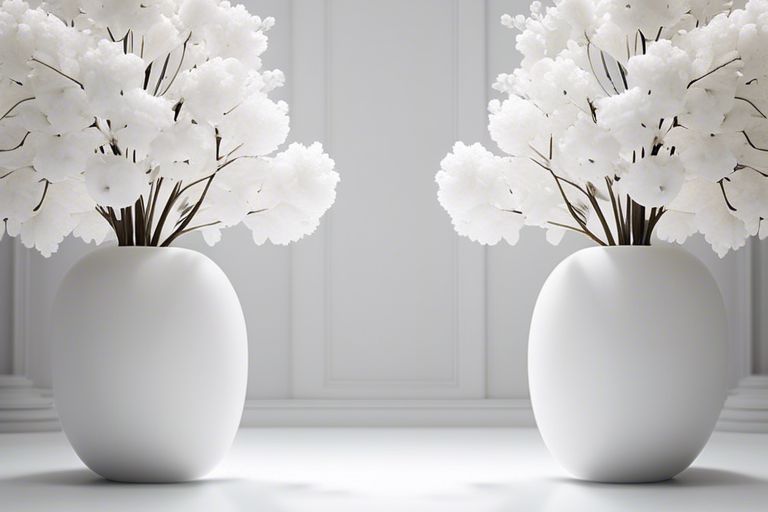What Does The Color Black Mean?
It’s time to investigate into the mysterious world of the color black and unravel its significance. Have you ever wondered about the deeper meanings associated with this dark shade? In this informative blog post, we will explore the symbolism, psychology, and cultural interpretations of the color black, shedding light on its enigmatic qualities. So, sit back, relax, and let’s uncover the secrets of black together.

Key Takeaways:
- Power and Authority: Black is often associated with sophistication, power, and formality. It signifies authority and can make a strong, bold statement.
- Mystery and Elegance: The color black is often linked to mystery and the unknown. It can evoke a sense of elegance and sophistication, adding a touch of glamour to designs.
- Emotional Depth: Black can also symbolize deep emotions, such as grief or sadness, but it can also represent a sense of protection and comfort in times of need.

Historical Significance
Ancient Civilizations
To ancient civilizations, black symbolized power, mystery, and authority. In ancient Egypt, black was associated with regeneration and the fertility of the Nile. The Egyptians used a black stone called ‘kohl’ to line their eyes, not just for cosmetic purposes, but also to protect their eyes from the harsh sun and ward off evil spirits.
Middle Ages and Renaissance
With the rise of Christianity in the Middle Ages and Renaissance, black took on new meanings. It became associated with mourning, death, and the unknown. During this time, black clothing was reserved for mourning the deceased. Royalty would wear black to symbolize their power and authority.
Another interesting aspect of black in the Middle Ages and Renaissance is its role in art. Artists like Leonardo da Vinci and Rembrandt used black to create contrast and depth in their paintings. The use of black in art during this period helped to emphasize light and shadow, creating dramatic and powerful imagery.
Cultural Associations
There’s a deep cultural significance attached to the color black that varies across different societies. Let’s explore into some of the key cultural associations linked to the color black.
Death and Mourning
Mourning is often symbolized by the color black in many cultures around the world. It represents a period of grieving, solemnity, and respect for the departed. The color black is commonly worn at funerals and memorial services as a sign of mourning and a way to honor the deceased.
Power and Luxury
Death is not the only association with the color black. In many cultures, black is also linked to power and luxury. The color black can convey sophistication, elegance, and authority. It is often used in high-end fashion and luxury products to signify exclusivity and status.
Another interesting aspect of the association with power and luxury is that black is often the color of choice for formal attire, such as tuxedos and evening gowns, emphasizing its connection to sophistication and elegance.
Rebellion and Nonconformity
For some, black represents rebellion and nonconformity. It is a way to stand out from the crowd and challenge traditional norms. Wearing black can symbolize a desire to break free from societal expectations and express individuality.
Power can also be associated with the color black in the context of rebellion and nonconformity. By choosing to wear black and reject societal norms, individuals can feel empowered and in control of their own identity and beliefs.
Symbolism in Nature
Night Sky and Shadows
All around you, the color black in nature holds deep symbolism. In the night sky, black represents the vast expanse of the universe, punctuated by stars and celestial bodies. It symbolizes mystery, the unknown, and the endless possibilities that lie beyond what we can see. Shadows cast by objects in the darkness add layers of depth and intrigue, creating a sense of mystique and hidden truths.
Animals and Insects
For animals and insects, black often signifies power, elegance, and sophistication. Think of the sleek coat of a panther moving stealthily through the jungle, or the graceful flight of a raven against the sky. Black in nature can represent resilience, adaptability, and a sense of resilience in the face of adversity.
To many animals, the color black aids in camouflage, helping them blend seamlessly into their surroundings and remain unseen by predators. It serves as a reminder of the various survival strategies adopted by creatures in the natural world.
Artistic Expressions
Despite its simplicity, the color black holds significant meaning in various forms of artistic expression. From the depths of paintings to the sleek designs of fashion, black is a powerful tool used by artists to evoke emotions and make bold statements.
Painting and Sculpture
To painters and sculptors, black serves as a powerful hue to create contrast and depth in their works. The use of black can draw the viewer’s eye, enhancing the overall composition of the piece. In sculpture, black can be used to accentuate form and highlight details, creating a sense of drama and intensity in the artwork.
Fashion and Design
Painting a canvas is not the only way that black makes a statement. In the world of fashion and design, black is celebrated for its versatility and timeless elegance. Black clothing is often associated with sophistication and can effortlessly transition from day to night, making it a staple in every wardrobe. Additionally, black in design is used to create sleek and modern aesthetics, adding a touch of luxury and sophistication to any space.
Fashion designers often use black as a base color to allow other elements of their design to stand out. Whether it’s a little black dress or a chic black suit, this color exudes confidence and power, making it a go-to choice for many.

Psychological Impact
Emotions and Mood
After examining the psychological impact of the color black, you may wonder about its effect on emotions and mood. An absence of light, black can evoke a wide range of feelings, from mystery and sophistication to fear and grief. When you incorporate black into your surroundings or attire, it can convey authority, power, and even a sense of rebellion. However, too much black can sometimes be overwhelming or lead to feelings of emptiness and melancholy.
Perception and Attention
After understanding how black influences emotions, consider its impact on perception and attention. The color black is often associated with seriousness, elegance, and strength. Incorporating black into your daily life can make you appear more sophisticated and confident. Additionally, black can draw attention to detail, helping you focus on what truly matters. However, it’s vital to use black strategically as too much can dominate a space and even create a sense of heaviness.
Spiritual and Mystical Meanings
Many spiritual and mystical traditions attribute deep significance to the color black, often associating it with mystery, the unknown, and hidden knowledge. In various belief systems, black is considered a powerful color that can symbolize both the beginning and the end of all things, representing the cyclical nature of life and death.
Occultism and Magic
To practitioners of occultism and magic, black is frequently linked to protection, banishing negativity, and warding off evil forces. It is believed that wearing or using black objects can help shield you from negative energies and provide a sense of grounding and stability in the face of spiritual challenges. Additionally, black is often associated with the power of transformation and initiation, symbolizing the journey through darkness to find light and wisdom.
Religious and Philosophical Interpretations
Any exploration of the religious and philosophical interpretations of the color black reveals a complex and multifaceted understanding. In some spiritual traditions, black is seen as a symbol of humility, restraint, and surrender to a higher power. It can also represent the primordial void from which all creation emerges, highlighting the potential for new beginnings and possibilities that arise from the darkness. In philosophical contexts, black is often associated with the concept of the unknown, inviting you to embrace mystery and contemplate the mysteries of existence.
Another perspective on the religious and philosophical interpretations of black is its association with the concept of the hidden or the unseen. In many mystical traditions, black is considered a color that conceals secrets, inviting you to probe deeper into the mysteries of the universe and explore the hidden realms of consciousness.
Final Words
Drawing together the various meanings and associations of the color black, you can see that it represents sophistication, mystery, power, and authority. It can convey elegance and formality or denote darkness and fear. By understanding the different connotations of black, you can use it intentionally in your clothing choices, decor, and branding to create the desired impact.
Q: What does the color black symbolize in different cultures?
A: In many cultures, black is associated with mystery, power, and elegance. It can represent formality, sophistication, and dignity, but also symbolize evil, death, and mourning.
Q: How does the color black impact emotions and psychology?
A: Black is often linked to feelings of authority, control, and protection. It can evoke a sense of security and create a barrier from external emotional stress. However, too much black can also be overwhelming and create a sense of heaviness or depression.
Q: What are some common uses of the color black in design and fashion?
A: Black is a versatile color that is frequently used in design and fashion for its timeless and chic appeal. It is often used to create contrast, highlight other colors, or convey a sense of sophistication and luxury. In fashion, black is a popular choice for formal wear and is often associated with elegance and minimalism.






